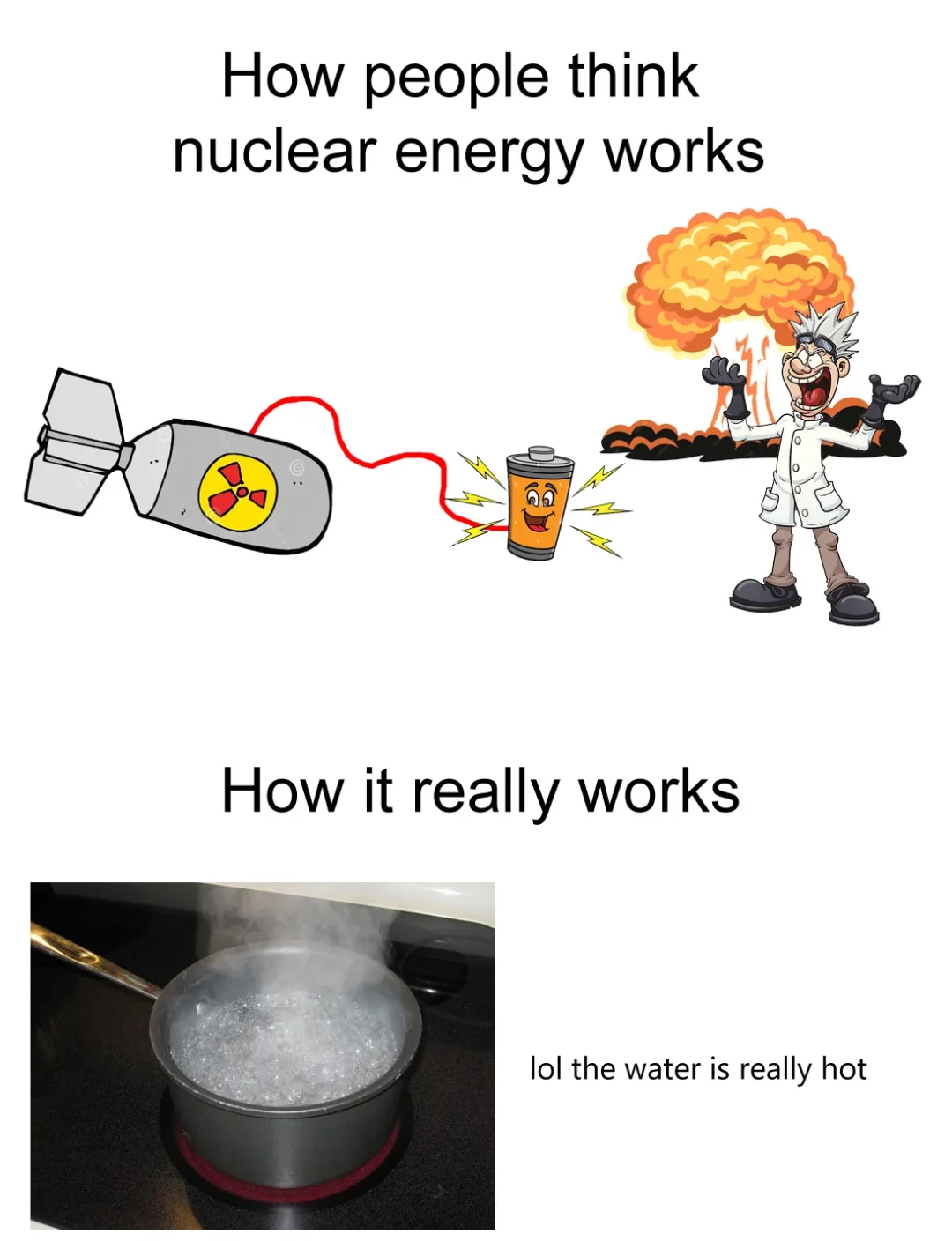this post was submitted on 15 Dec 2024
1023 points (96.9% liked)
Science Memes
11437 readers
2460 users here now
Welcome to c/science_memes @ Mander.xyz!
A place for majestic STEMLORD peacocking, as well as memes about the realities of working in a lab.

Rules
- Don't throw mud. Behave like an intellectual and remember the human.
- Keep it rooted (on topic).
- No spam.
- Infographics welcome, get schooled.
This is a science community. We use the Dawkins definition of meme.
Research Committee
Other Mander Communities
Science and Research
Biology and Life Sciences
- [email protected]
- [email protected]
- [email protected]
- [email protected]
- [email protected]
- [email protected]
- [email protected]
- [email protected]
- [email protected]
- [email protected]
- [email protected]
- [email protected]
- [email protected]
- [email protected]
- [email protected]
- [email protected]
- [email protected]
- [email protected]
- [email protected]
- [email protected]
- [email protected]
- [email protected]
- [email protected]
- [email protected]
- !reptiles and [email protected]
Physical Sciences
- [email protected]
- [email protected]
- [email protected]
- [email protected]
- [email protected]
- [email protected]
- [email protected]
- [email protected]
- [email protected]
Humanities and Social Sciences
Practical and Applied Sciences
- !exercise-and [email protected]
- [email protected]
- !self [email protected]
- [email protected]
- [email protected]
- [email protected]
Memes
Miscellaneous
founded 2 years ago
MODERATORS
you are viewing a single comment's thread
view the rest of the comments
view the rest of the comments

Chernobyl was a ridiculous level of negligence on the part of the technicians working at a plant with a very unsafe design.
Fukushima was a reasonably safe reactor design with terrible (and noted as such decades before the meltdown) site designs which could be described as "designed to fail".
You could argue that lessons have been learned from both of those, and Three Mile Island, and safer designs are the result. Or you could argue that Fukushima clearly shows that people shouldn't be involved in such high-risk projects because they will cut corners that will inevitably lead to disasters. If the second is your stance, take a look around. There are plenty of projects with similar risks in other fields all the time.
Then name three examples please, that have a Chernobyl level of risk.
Here's a list of industrial disasters. Take your pick of the ones that count as engineering or negligence (and Chernobyl was at least as much negligence as engineering) and tell me how many you get to.
Of course, we haven't discussed what kind of risk we're talking about. And is it better to have thousands of low-impact high-risk activities or one or two high-impact low-risk activities? Because, make no mistake, nuclear has cost less in human lives per unit of energy than any other power generation method we have. And hydroelectric has as profound an impact on the environment as nuclear fallout, it just tends to make some nice beaches and fishing so it isn't negative, right?